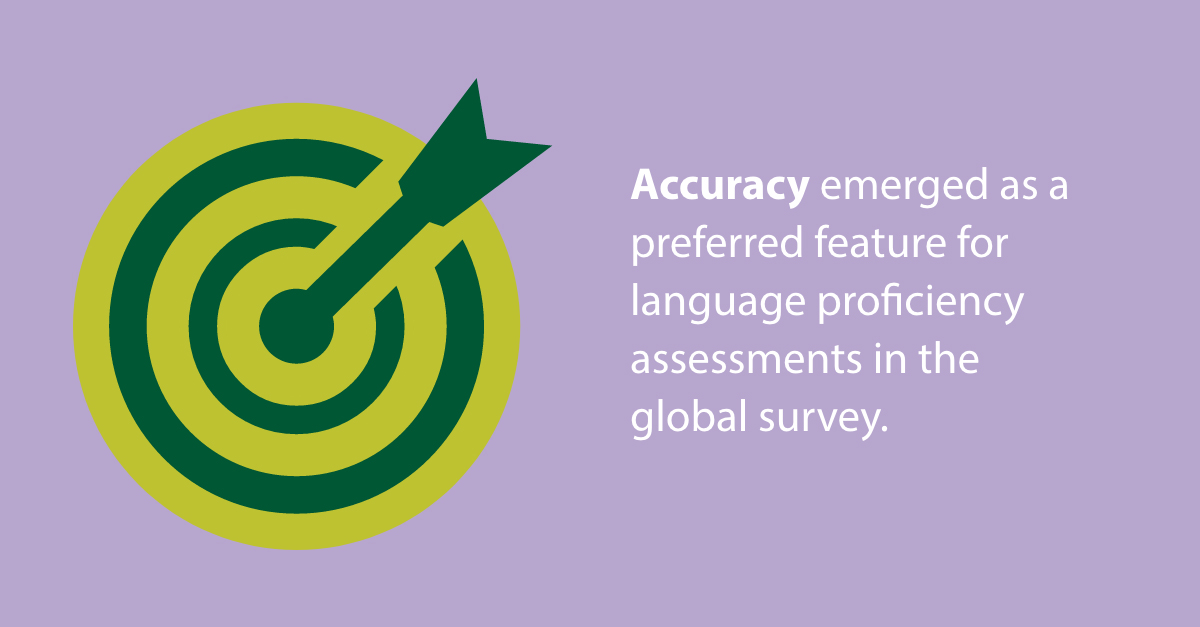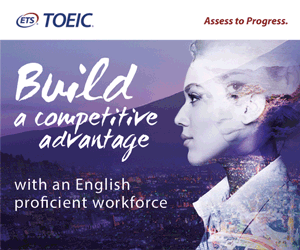Key considerations for assessing English proficiency
English is the international language of business, and encouraging proficiency among your workforce can have a positive impact on your organization’s performance. An English-speaking business may benefit from new opportunities that are not available to those without this capability. So, language skills count. But it is not enough to simply state, “our organization is English-speaking,” or “our workers are competent in English.” How can you be sure that this is the reality? How is their proficiency being measured?
This is why assessment procedures for English skills are so important: they provide quantifiable evidence of an individual’s or an organization’s proficiency level. There are several ways to assess this proficiency, so it is important to choose the right measurement tool for your business. In a global survey of multinational companies carried out by the Educational Testing Service (ETS) and Ipsos Public Affairs, 650 human resources managers in 10 countries were asked their preferred characteristics of an English proficiency assessment. Overall, organizations want reliable language assessments that meet their business needs, and when it comes to the specific features of assessments, they look for those that are accurate, deliver valid results, and have a solid, globally-recognized reputation.
Accuracy emerged as a preferred feature for language proficiency assessments in the global survey. Some assessment methods, such as personal observation and co-worker assessments, are more subjective and only provide partial data. Do you want to rely on partial data for important talent decisions such as hiring selection, placement and training? For accurate, objective data that provides consistent methodology to compare individuals, standardized testing is the way forward.

HR managers need to be able to trust the results of testing procedures for assessing English language skills, and sourcing a provider with a strong global reputation can deliver this confidence. Data from this same global survey suggests that standardized testing provides greater value when it comes to validity, accuracy, reliability and reputation, which may be due to its rigorous design process and objective approach.
It’s important to regularly review assessment practices to ensure they continue to meet the organization’s needs. As businesses evolve, language requirements may also change. Having the appropriate English language assessment procedure in place to meet current and future needs supports wider organizational goals and helps drive progress.
For over 35 years as industry leader, the TOEIC® Program has set the standard for assessing English-language communication skills needed in the workplace. With about 7 million tests administered every year, the TOEIC tests are the most widely used worldwide with more 14,000 organizations across some 160 countries trusting TOEIC scores to make talent decisions.
To find out more about how the TOEIC program helps businesses build a more effective workplace, visit www.TOEICglobal.com.
Copyright© 2017 by Educational Testing Service. All rights reserved. ETS, the ETS logo and TOEIC are registered trademarks of Educational Testing Service (ETS) in the United States and other countries. 37432632



